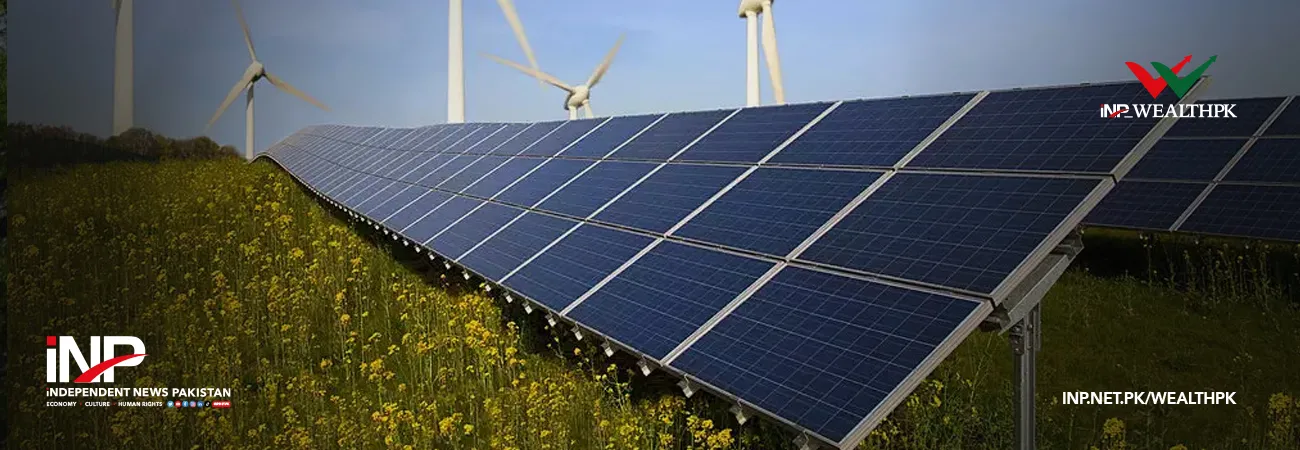INP-WealthPk
Muneeb ur Rehman
Amidst the country’s commitment to reducing carbon emissions, collaboration between China and Pakistan in the clean energy sector holds significant potential for fostering sustainable growth, said Muhammad Ali Baig, Senior Researcher at the China Study Centre, Institute of Strategic Studies Islamabad (ISSI). “To make swift advancements towards the United Nations' Sustainable Development Goals (SDGs), Pakistan needs financial and technical support. The projects under the CPEC hold significance in providing both technical and financial support,” he said. He cited the Quaid-i-Azam Solar Park in Bahawalpur as an example of the successful clean energy projects under the CPEC. “Quaid-i-Azam Solar Power Plant, with a capacity of 1,000 megawatts, is the leading facility of its kind in operation in Pakistan as part of the China-Pakistan Economic Corridor (CPEC),” he said. According to the data available on the website of the Ministry of Planning, Development, and Special Initiatives, out of the total capacity of 1,000MW, 400MW has been added to the national grid whereas the remaining 600MW is in the implementation phase. He said the gap between energy supply and demand is significantly hindering investment, trade, and domestic production, leading to a state of profound economic stagnation.
Pakistan's per capita energy consumption has surged to 417.99 kilowatt hours, showing the severity of the energy crisis. Additionally, Muhammad Ali Baig gave the example of Karot Hydropower Project — a rockfill gravity dam with an installed capacity of 720MW. The project, sponsored by China’s ‘Three Gorges Corporation’ (CTG), holds key importance in providing clean and affordable energy. To date, Gwadar has seen the installation of 7,000 solar panels — a significant development that is providing the much-needed relief to the local community grappling with an energy crisis that has persisted for decades, he said. Furthermore, the 100MW Jhimpir wind energy project in Thatta district of Sindh has started contributing renewable energy to the energy mix, he added. The 1,124MW Kohala hydropower project in Azad Kashmir and Cacho wind power project in Sindh are expected to lessen the share of non-renewable energy in the energy sector, he said. The China-Pakistan Economic Corridor, an integral component of the Belt and Road Initiative (BRI), has the capacity to enhance Pakistan's clean energy production. It has the potential to emerge as a pivotal catalyst for sustainable growth in the country.
Credit: INP-WealthPk













